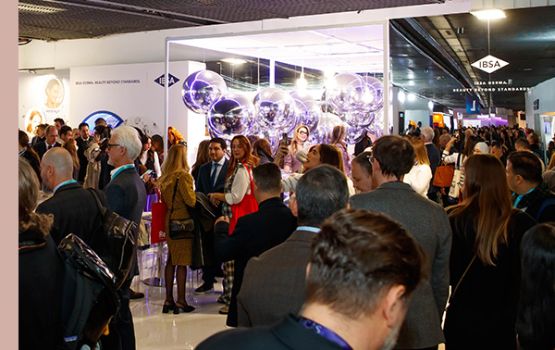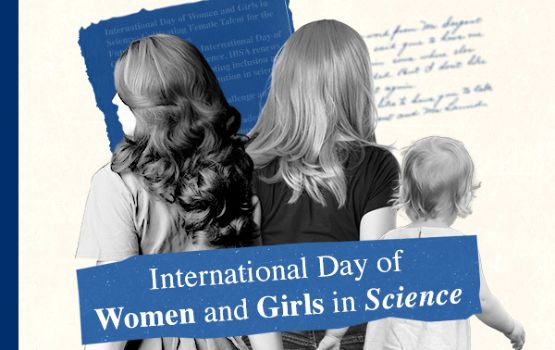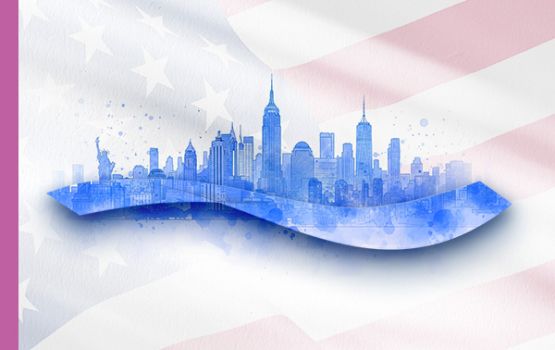Devoting one’s free time to others is a choice that speaks of responsibility. At IBSA, this choice takes shape in a project that, starting in 2025, allows employees at the headquarters and at the Italian subsidiary to dedicate part of their working hours to volunteering activities in social, environmental and cultural fields.
IBSA and the corporate volunteering project: individual responsibility, common benefit
RESPONSIBILITY: GENUINE CARE FOR PEOPLE, SOCIETY, AND THE ENVIRONMENT
Responsibility is one of the four pillars on which IBSA is founded: not an abstract principle, but a daily commitment. This new initiative is a concrete action aligned with IBSA’s values, based on the idea that an individual’s contribution can profoundly impact the community, and that this impact also resonates within the company.
This project was developed by IBSA’s ESG department in collaboration with the Human Resources Department and is open to all employees. The initiative rests on a simple premise: personal commitment is a powerful tool for transformation.
Federico Mautone, Head of Human Resources, and Mauro Ghirlanda, HR Administration Manager, played key roles in translating the ESG’s vision into a global project. In this news, they share authentic insights into the project’s significance, exploring both personal and professional dimensions.
VOLUNTEERING AS A DRIVER FOR GROWTH AT ALL LEVELS
Federico Mautone and Mauro Ghirlanda have long been volunteers – as Scout Leader and as a Volunteer Firefighter, respectively.

“My experience as a scout leader”, said Mautone, “taught me to lead, listen, recognise the value of each individual in the group and mediate differing perspectives – skills that I use daily in my work”.
Mauro Ghirlanda also emphasised the positive impact of volunteering on his personal growth: “Being a volunteer firefighter requires clarity, quick decision-making and deep respect for people and context. Beyond enhancing my work, this experience made me more present, practical and proactive in managing teams”.
Both agree that volunteering directly strengthens workplace relationships. “Sharing such experiences”, continued Mautone, “creates strong bonds and shifts the focus from oneself to others, which is a vital value in professional settings too”.
A PROJECT UNITING CULTURE, PEOPLE AND COMMUNITIES

IBSA’s project aims to simplify access to volunteering by connecting employees with local organisations. This initiative was born from careful listening, as explained Mauro Ghirlanda: “We want to offer activities aligned with the sensibilities of our colleagues. This way, existing volunteers will no longer have to ask for leaves or days off; and, at the same time, we hope to inspire new participants”.
For Federico Mautone, the project also reflects IBSA’s clear stance: “Giving time is a very powerful act of generosity. When supported and valued by an organisation, it can become a catalyst for both personal and corporate cultural change”.
IBSA has already curated volunteering opportunities, but employees can also propose other associations and activities, according to certain criteria and areas of intervention. So far, the response has been enthusiastic: “This initiative was welcomed very positively”, concluded Mauro Ghirlanda, “because it meets a widespread need to make a difference without sacrificing work or personal life”.
In the coming months, we’ll delve deeper into these corporate volunteering activities through firsthand stories!
In the meantime, read the full interviews with Federico Mautone and Mauro Ghirlanda, below.
Federico Mautone: My involvement as a volunteer in the Scouts began in 2006 (at the age of 17) when I started as a Leader, becoming one of those responsible for organising activities for young people who take part in Scouting. For me, Scouting has been an important life school, teaching me many values I believe in, but it was also a place where I built strong friendships and where to experiment in a positive environment. I chose to volunteer to ensure that other young people could have the same enriching experience that I had.
Mauro Ghirlanda: I began about five years ago as a volunteer firefighter in a station located in the Malcantone area, a peripheral region near Lugano. What pushed me to start was the desire to support my community, especially considering that in some more remote areas, professional emergency services can take longer to arrive. Knowing that I could make a difference in emergency situations simply by already being on site was the main reason I chose to get involved.
Federico Mautone: Throughout my time in Scouting, I’ve taken on various roles. I was active with the Explorer Unit (ages 11–14) before becoming Deputy Section Leader and later Section Leader from 2010 to 2016 – during which I was responsible for managing a group of over 100 active members. After finishing this more “hands-on” phase, I joined the Cantonal Board of Scouting Ticino and I am currently Vice President of the Medio Vedeggio Scout Section.
The method of the Swiss Scout Movement aims at the “holistic development of the individual”, which is the evolution of the original idea of “forming good citizens” established by founder Baden Powell in 1907. One of the basic principles of the movement is therefore to bring your Scouting experience into both private and professional life.
The Scout Law promotes the following values: be open and honest, listen to and respect others, spread joy, share, offer help, love life and protect nature, make decisions and commitments, and face challenges with confidence. I always do my best to apply these principles in my professional life as well.
Mauro Ghirlanda: Volunteering with the fire brigade requires a structured path, involving technical training and ongoing preparation. Over time, I’ve gained not only operational skills but also fundamental human qualities. In complex situations, I’ve learned to face emergencies with clarity and to work effectively as part of a team, where everyone has a role and responsibilities. I bring this same approach to the workplace: the ability to make decisions, take responsibility for them, and work as a team are all skills that are strengthened in the field but fully applicable in the office too.
Federico Mautone: Time is a scarce and valuable resource, perhaps even more so today than in the past, given that we are always connected. There are key areas in society that depend on volunteers to function, because they do not have sufficient income to employ paid staff. That’s why it is important for companies to support volunteering: so that their people – and indirectly the company itself – can invest positive energy into society.
Mauro Ghirlanda: Finding time for volunteering is increasingly difficult: between work, family, and the need to recharge, this type of commitment often gets pushed aside. Allowing people to carry out volunteer work during working hours is a tangible gesture of care from the company. It gives individuals the chance to contribute to the common good without having to sacrifice other aspects of their lives. Moreover, recognising the human side of employees – not just their technical skills – enriches the entire organisation, because volunteering fosters qualities such as empathy, initiative, and interpersonal skills, which are also essential in professional contexts.
Federico Mautone: Volunteering allows you to connect with people who share the same values and ideals, helping build meaningful relationships. These bonds add to those we have with family, friends and colleagues. This also gives you the opportunity to experience new environments and broaden your perspective. People who volunteer bring with them a wealth of experience and skills that can often be applied in the workplace too – both as soft skills and technical abilities.
Mauro Ghirlanda: Volunteering is a transformative experience. It teaches you to listen, to observe, and to have respect for people and situations, especially when you’re acting in delicate moments like emergencies. Building strong relationships with my fellow firefighters – all volunteers – has been fundamental: we get to know each other, we learn to work together, we trust one another. This strengthens our connection to the local area and the community. All of this has enormous value in a corporate context as well: it creates cohesion, team spirit, and awareness of one’s role within a group.
Federico Mautone: All organisations, especially those run by volunteers, rely on the contribution of individuals. Each contribution counts, because it combines with others to reach a shared goal. For volunteer organisations, it’s crucial to make use of all available resources, even if people cannot ensure a constant presence.
So yes, the contribution of a single person can really make a difference.
A concrete example: one challenge we often face in Scouting is maintaining support from Leaders who move from Ticino to other parts of Switzerland for study or work. These are Leaders who have undergone years of training in both Scouting and Youth and Sport (Federal Office of Sport). Today, we have Leaders who live in Zurich but regularly join meetings online and travel back to Ticino to take part in activities. Without their commitment and dedication, it would be very difficult to manage an organisation that now has 130 active members. In cases like this, an individual’s contribution really makes the difference.
Mauro Ghirlanda: Yes, I firmly believe that the contribution of an individual can make a difference. Every intervention I’ve taken part in – even the “simplest” – has confirmed how important it is simply to be there. I particularly recall situations such as accidents or cardiac arrests: being on the scene in a few minutes can truly make the difference. Even seemingly simpler interventions – like a small fire or removing a wasp nest close to the house of an allergic child – are examples where timing and presence matter. Sometimes the recognition comes from a simple look or a smile, but it’s enough to know that it was worth it.



